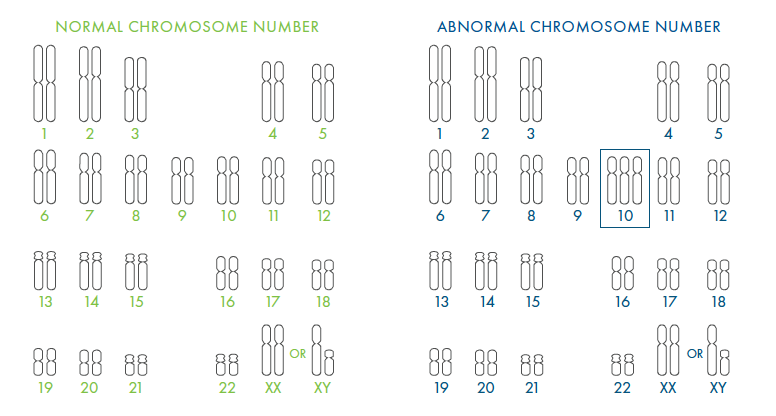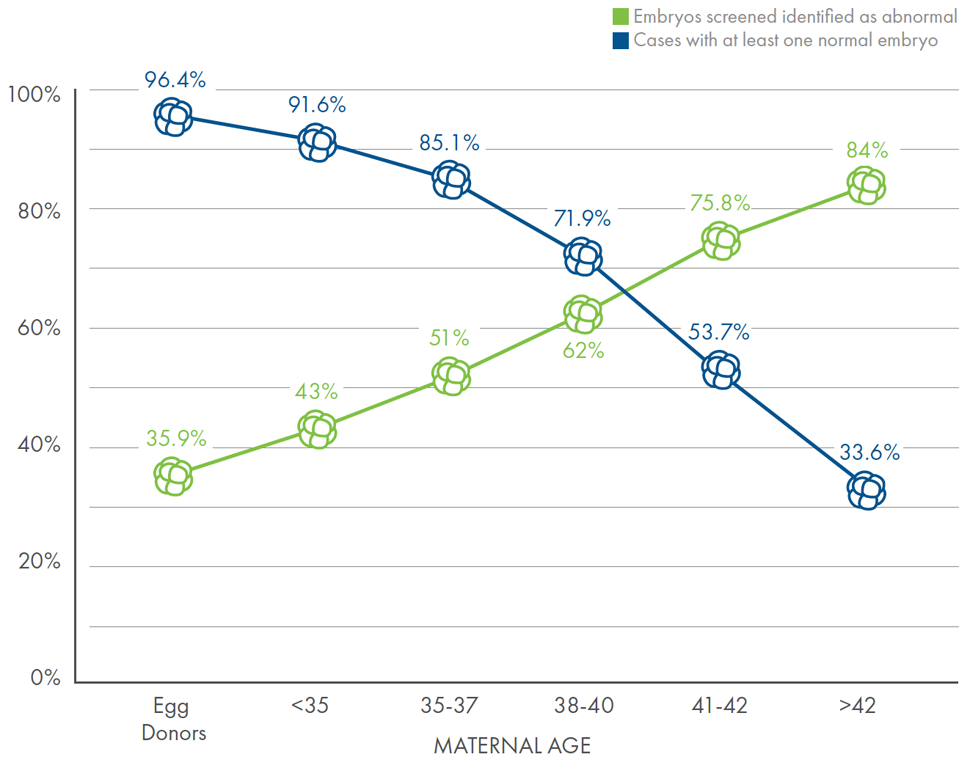PGT-A
A genetic test designed to increase the chance of IVF success
What is PGT-A?
PGT-A, or preimplantation genetic testing for aneuploidies, is a genetic test performed on embryos produced through IVF. PGT-A gives information about embryos’ genetic health to help your care team select the best embryo for transfer and improve your chance of achieving a successful pregnancy. PGT-A was formerly known as PGS, preimplantation genetic screening.
How it works
PGT-A works by looking at the amount of genetic material within IVF embryos. This genetic material is housed within structures called chromosomes. Chromosomes are very important for healthy growth and development.
Embryos with the incorrect number of chromosomes (also called aneuploid embryos) typically do not result in a successful pregnancy or may lead to the birth of a child with a genetic condition. Embryos with the correct number of chromosomes (also called euploid embryos) have a better chance of leading to a successful pregnancy. PGT-A identifies embryos with the correct number of chromosomes, so your care team can select the embryo with the best chance of leading to IVF success.

Who is PGT-A for?
PGT-A is appropriate for the vast majority of people undergoing IVF.
All women are at risk of producing chromosomally abnormal embryos. As a woman ages, the potential for chromosomally abnormal embryos significantly increases, regardless of the number of embryos produced.
PGT-A can help women of all ages increase their chances of a successful pregnancy.
Benefits of PGT-A
- Higher chance of pregnancy
- Reduced risk of miscarriage
- More confidence in transferring a single embryo, avoiding health risks associated with twin or triplet pregnancies
- Reduced number of IVF cycles needed to achieve pregnancy, potentially reducing the time to pregnancy and the costs of extra cycles

PGT-A Results
CooperGenomics uses the most advanced embryo screening technology available, providing the most complete picture of chromosomal health.
For each embryo tested, PGT-A results will fall into one of three categories: euploid, aneuploid, or mosaic. This information can help your care team select the best embryo for transfer.
Euploid1 |
Aneuploid1 |
Mosaic2,3 |
|
| Number of chromosomes per cell | Normal | Abnormal | Mixed (some normal & some abnormal) |
| Likelihood of producing a successful pregnancy | High | Very unlikely | Low, but possible |
| Recommended for transfer | Yes | No | No; provider may consider transfer if no euploid embryos available |
- Harton et al. (2013) Diminished effect of maternal age on implantation after preimplantation genetic diagnosis with array comparative genomic hybridization. Fertil Steril.
- Fragouli et al. (2015) The developmental potential of mosaic embryos. Fertil Steril.
- Greco et al. (2015) Healthy Babies after Intrauterine Transfer of Mosaic Aneuploid Blastocysts. N Engl J Med.
The PGT-A Process
PGT-A can easily be added to your IVF treatment plan. Here’s how it works:

IVF
Embryos are produced through an IVF cycle.

IVF
Embryos are produced through an IVF cycle.

PGT-A
CooperGenomics uses cutting-edge technology to analyze the genetic material present within each embryo.

Transfer & Improved Chance of Success
Embryos most likely to result in success are selected for transfer or can be frozen for future use.

